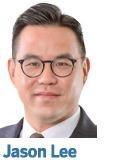On Dec 30, the Standing Committee of the National People’s Congress (NPCSC) delivered an interpretation of Articles 14 and 47 of the National Security Law (NSL) for Hong Kong at the request of Chief Executive John Lee Ka-chiu on whether overseas lawyers can handle national security cases in the city’s courts.

It was a reasonable request by HKSAR’s chief executive,
especially when it comes to protecting State secrets. Jimmy Lai Chee-ying’s upcoming
trial on charges of colluding with foreign forces is of serious concern to the HKSAR
government and the public. If a foreign counsel’s home country were to be
implicated in the case, he or she would be under great pressure from some
quarters of society back home, and that may compromise their professionalism,
or even lead to the disclosure of confidential information.
In its interpretation, the NPCSC, to some people’s surprise, said Hong Kong already has the power to resolve the issue under the NSL. In other words, the central authorities decided not to intervene, but left the matter to Hong Kong to resolve.
The interpretation upholds Hong Kong people’s right to retain legal representatives, which is protected by the Basic Law, and allows foreign lawyers to represent cases in the city’s courts.
Article 47 of the NSL requires local courts to obtain a certificate from the chief executive to certify whether an act involves national security or whether the relevant evidence involves State secrets when such questions arise in the adjudication of a case. The NPCSC clarified that the question of whether an overseas lawyer can represents a national security case falls under Article 47. In the HKSAR, the chief executive chairs the city’s Committee for Safeguarding National Security of the HKSAR (CSNS), which is responsible for policy formulation, legal system development and national security-related coordination.
Therefore, in Lai’s case, the chief executive will decide,
in the best interests of Hong Kong, whether UK-based King’s Counsel Timothy
Owen can represent Lai in his national security case. If the court fails to
apply for a certificate when there is a need, the CSNS would have to step in under
Article 14 of the NSL, the NPCSC pointed out in its interpretation.
The interpretation upholds Hong Kong people’s right to retain legal representatives, which is protected by the Basic Law, and allows foreign lawyers to represent cases in the city’s courts. People can still hire foreign lawyers, as they always do, even in national security cases, only with some limits imposed on specific situations, based on certain facts, on a case-by-case basis. This has largely ensured stability in line with the expectations of both the local and international communities.
It’s true that any legal interpretation could trigger controversy, partly because of the difference between the legal systems of Hong Kong and the Chinese mainland. Thus, the central authorities’ have always been hesitant to make a legislative interpretation. That’s also why the NPCSC has used its power only six times in the past 25 years.
The NPCSC, indeed, has the power to interpret the NSL. Theoretically, it can simply ban all overseas lawyers from representing defendants in cases concerning national security, in order to avoid risks of State secrets being leaked. This is also in line with global standards as Hong Kong is among the very few common-law jurisdictions that allow overseas lawyers to represent cases in their courts, whereas most other common-law jurisdictions, includingAustralia, New Zealand, India, Malaysia, Singapore and South Africa, do not admit overseas lawyers.
The NPCSC exercised its power of interpretation with considerable restraint. It merely offered an instruction, or dropped a reminder, for the HKSAR government and courts as to how such an issue can be resolved under the “one country, two systems” framework. It shows the central government’s respect for Hong Kong’s rule of law and its resolve to safeguard the city’s judicial independence.
Moreover, the move has also quelled malicious accusations that the NPCSC’s legislative interpretations of the law were “a show orchestrated by Beijing behind the scene”. Some netizens have alleged that the interpretations were initiated by Beijing under the guise of Hong Kong’s request. But the latest interpretation laid bare the truth: It’s simply not logical for the central authorities to put up such a “show” just to confirm that the HKSAR has the power to resolve the dispute on its own. Hopefully, this case can help to explain to those doubting Beijing’s intentions toward Hong Kong’s rule of law.
It also reminds the HKSAR government of its own responsibility in implementing “one country, two systems”. I believe the chief executive had taken a rather conservative move concerning the issue of overseas lawyers participating in national security cases in Hong Kong as the NSL is a new law without any precedent to follow. And, any misunderstanding could have a major social impact.
The NPCSC’s move has sent out a very clear message that the HKSAR government, especially the Department of Justice, should be more proactive and bold in implementing the principle of “one country, two systems” and enforcing the rule of law instead of waiting for instructions from the central authorities.
Indeed, “one country, two systems” is one of the world’s most complex constitutional arrangements. It requires the most in-depth understanding of both social systems and the highest-level of maneuvers. Therefore, Hong Kong politicians should take a “protagonist” and visionary role in improving the system. In the wake of the Tim Owen case, Hong Kong’s administrators will be more aware of the true spirit of the “one country, two systems” principle. Beijing, on the other hand, has made its resolve clear to Hong Kong people and the international community that it always intends to uphold Hong Kong’s judicial independence.
The author is a member of the Hunan Province Committee of the Chinese People’s Political Consultative Conference, Executive Vice-Chairman of the Hong Kong CPPCC Youth Association and Vice-Chairman of the Hong Kong Y.Elites Association.
The views do not necessarily reflect those of China Daily.


